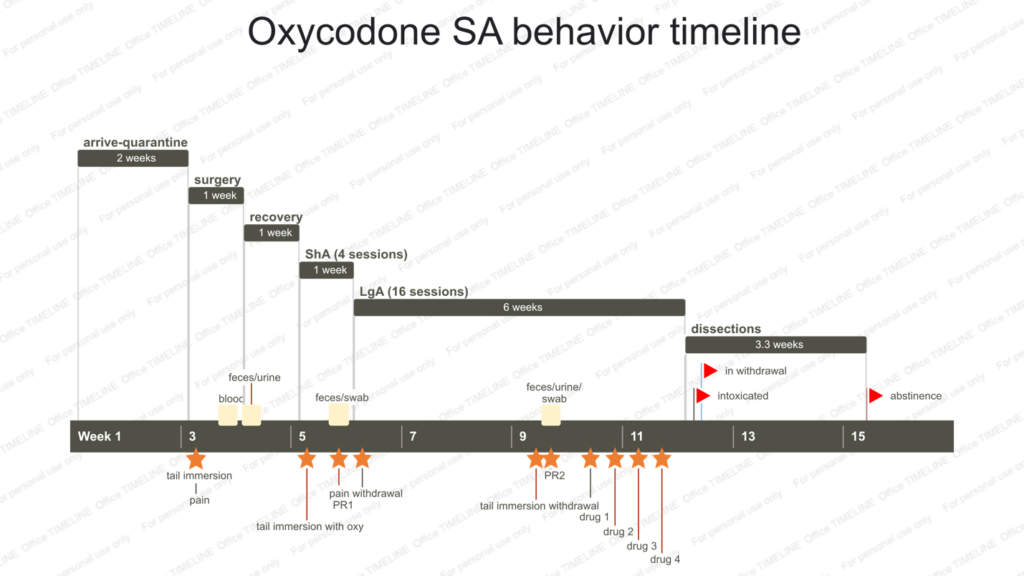This project U01DA044451 is conducted by Olivier George, PhD of the University of California – San Diego.
Epidemiological studies suggest that genetic variability significantly contributes (20-60%) to the analgesic response to opioids and vulnerability to opioid use disorder. However, genome-wide association studies (GWASs) in humans have only begun to identify specific genes that confer this risk. One major impediment to studies of opioid use disorder is the complexity of the phenotype and lack of control of environmental variables. We propose a complementary approach that leverages a multidisciplinary, highly collaborative consortium that combines next-generation sequencing with state-of-the-art behavioral screening in a unique, genetically diverse, nonhuman animal model. The primary goal of this proposal is to identify gene variants that are associated with greater vulnerability to compulsive oxycodone use, tolerance to the analgesic effects of oxycodone, development of withdrawal-induced hyperalgesia, and sensitivity to FDA-approved medications by performing a GWAS in N/NIH heterogeneous stock rats. We will use the most relevant animal model of oxycodone use disorder (i.e., escalation of intravenous oxycodone self-administration) and highly standardized measures of compulsive oxycodone self-administration combined with longitudinal assessments of pain thresholds. This project is likely to have a sustained and powerful impact on the field because it will (1) characterize the transition from controlled to compulsive oxycodone use and its comorbidity with hyperalgesia in male and female outbred rats, (2) identify genes associated with compulsive oxycodone use, the preclinical efficacy of current medication (e.g., buprenorphine), and the analgesic/hyperalgesic effects of chronic oxycodone use, and (3) facilitate follow-up studies by creating a repository that contains brain and blood with a variety of tissue preservation protocols that will facilitate follow-up and replicative studies by allowing the generation of induced pluripotent stem cells and neuroanatomical, molecular, biochemical, and pharmacological studies on behaviorally/genetically characterized animals.

Last updated Sept 8, 2020
